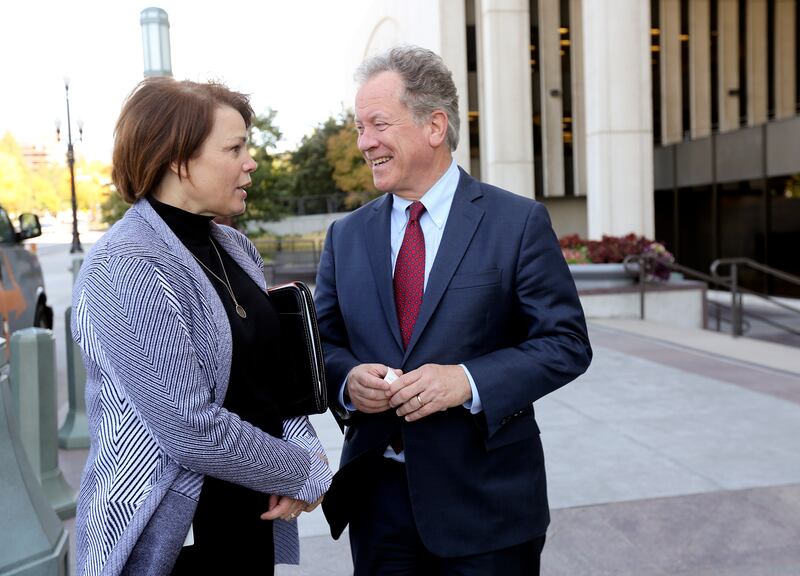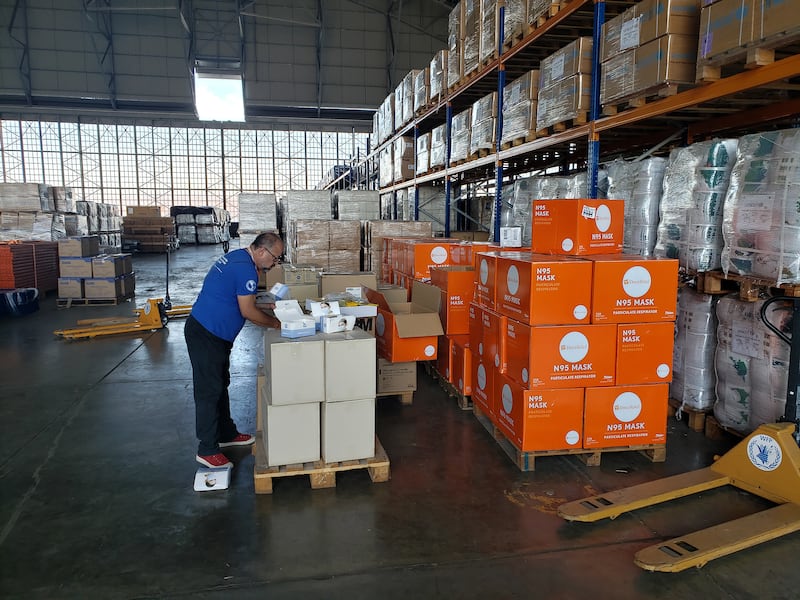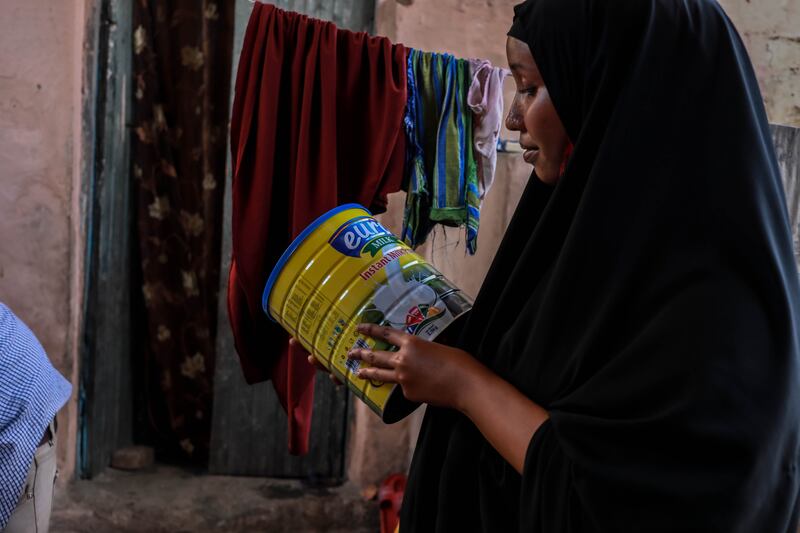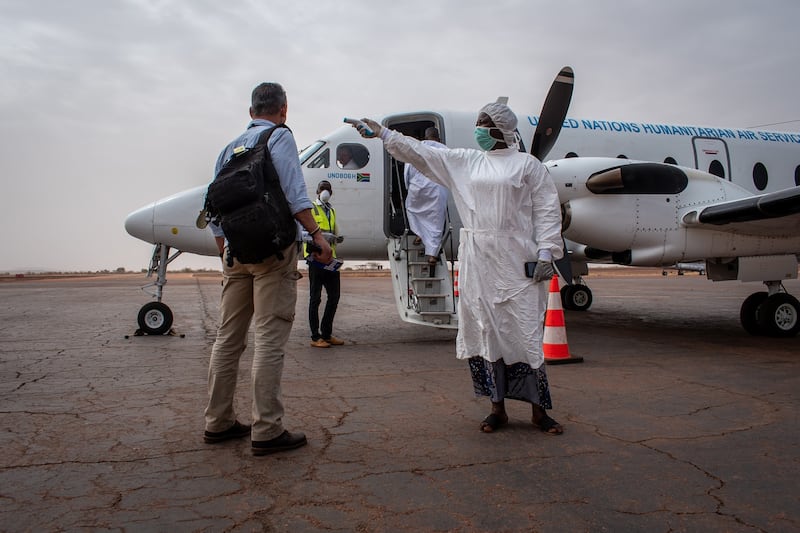SALT LAKE CITY — The Nobel Peace Prize awarded Friday to the World Food Program turned the spotlight toward the size of the task faced by the longtime partner of Latter-day Saint Charities as it tries to keep up with a spike in global hunger caused by COVID-19.
The World food Program is the largest humanitarian aid organization addressing world hunger. It provided food aid in 88 countries last year to nearly 100 million experiencing famine, starvation and food insecurity.
“Before COVID hit the scene, I was telling world leaders that 2020 was going to be your worst humanitarian crisis/disaster since World War II,” program executive director David Beasley told PBS earlier this year.
He said the number of people on the brink of starvation rose from 80 million to 135 million last year and could double this year. He said the organization would need an additional $5 billion over the second half of 2020 to keep up.
“We’re seeing economic deterioration,” Beasley said. “We’re seeing supply chain disruption. You remember, just a few months ago in the United States, people were panicking just trying to get toilet paper. You can imagine, if that happens in one of the most sophisticated supply chain systems in the world, what do you think is happening in Chad or DRC or Somalia? Just imagine the disruption of the availability of food. And these people don’t have a pantry full of food. They live literally day to day from hand to mouth. And so, if you do a lockdown in an area, it is devastating.
The World Food Program and Latter-day Saint Charities have partnered in more than 50 projects in 20 countries since 1996, church spokesman Doug Andersen said.
“If we’re not there with a safety net program for people in this situation, you’re talking about mass starvation,” Beasley said. “You’re talking about potential of mass migration and/or you’re also talking about destabilization, political unrest, violence in an extraordinary way.”
Friday’s announcement could help focus the world on the problem.
“The combination of violent conflict and the pandemic has led to a dramatic rise in the number of people living on the brink of starvation,” Berit Reiss-Andersen, chair of the Norwegian Nobel Committee, said when she announced the prize in Oslo, Norway, according to the New York Times.
“In the face of the pandemic, the World Food Program has demonstrated an impressive ability to intensify its efforts,” she added.
The World Food Program is “now the logistics humanitarian backbone for the entire United Nations systems,” Beasley said in his PBS interview.

“We have got the supply chain system to move our food, and we’re doing that very well,” he added. “But because the airline industry has all but shut down with passengers and cargo, you can’t move COVID supplies. So, while we have been able to move our food supplies in a pretty good way, though there are hiccups and issues, the COVID supplies can’t get there, from testing kits, to ventilators, to masks and PPE, and let me just keep going.”
The organization enlisted help from Latter-day Saint Charities, the charity arm of The Church of Jesus Christ of Latter-day Saints.
LDSC recently donated $2 million to help the World Food Program establish three global hubs in its supply chain network. The hubs are in Belgium, China and the United Arab Emirates, locations that provide proximity both to major commercial air freight and key manufacturers in the health care industry.
The donation also supports regional food hubs in Ethiopia, Ghana, Malaysia, Panama and South Africa.

The global and regional centers are moving health care workers and humanitarian cargo to countries responding to the pandemic. Planes shuffle between the hubs to move workers and aid where they are most needed.
The hubs have delivered aid to 161 countries and 18,000 workers from multiple aid organizations to 55 destinations.
In addition to the $2 million to support the global food hubs, Latter-day Saint Charities also announced last month it was helping to fund the program’s effort to feed schoolchildren in Somalia who no longer were being fed through schools because of the pandemic.

The church’s charity now has given more than $12 million to World Food Program since 2014, based on previous announcements. Those donations have helped feed an estimated 1.5 million people.
World Food Program is a key global partner for Latter-day Saint Charities, which seeks partnerships with larger organizations that have access to aid hot spots around the world and can maximize the church’s donations.
For example, it gave $1M to the program in March 2018 to help provide food staples in the Democratic Republic of Congo.
“The outstanding work of WFP has enabled us to send critical aid to some of the most challenging places in the world — places we may never have reached without their efforts,” Presiding Bishop Gérald Caussé said then.
Beasley visited Salt Lake City to meet with LDS Charities and the Presiding Bishopric of the church in September 2019.
“What’s driving the rate of increasing hunger in the world today is man-made conflict,” Beasley said during his visit, “so to have a partner that understands that the most powerful weapon on Earth is love — in times like this when there’s so much destabilization and so much conflict — to have a partner that understands reconciliation is extremely important today.”


